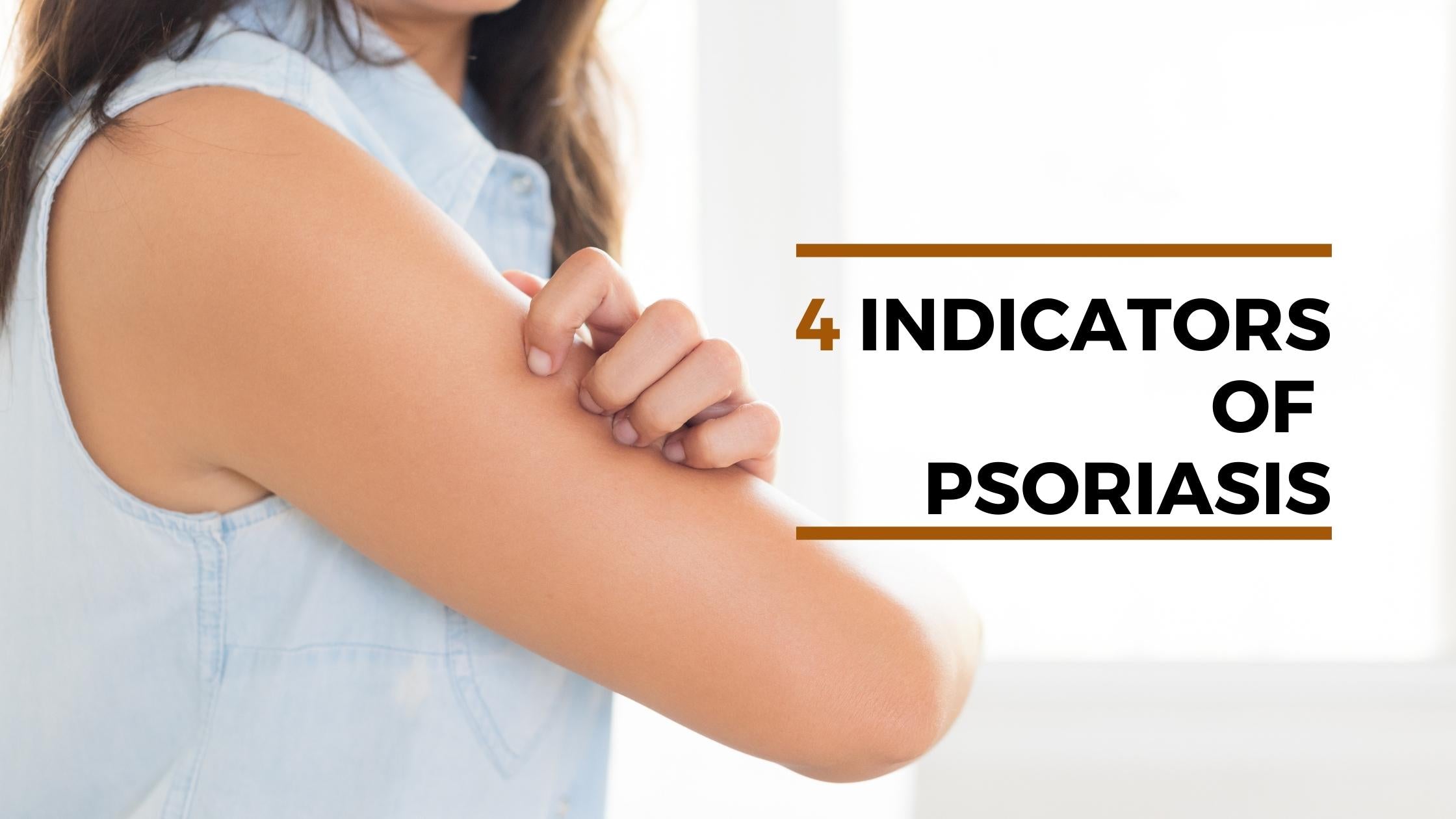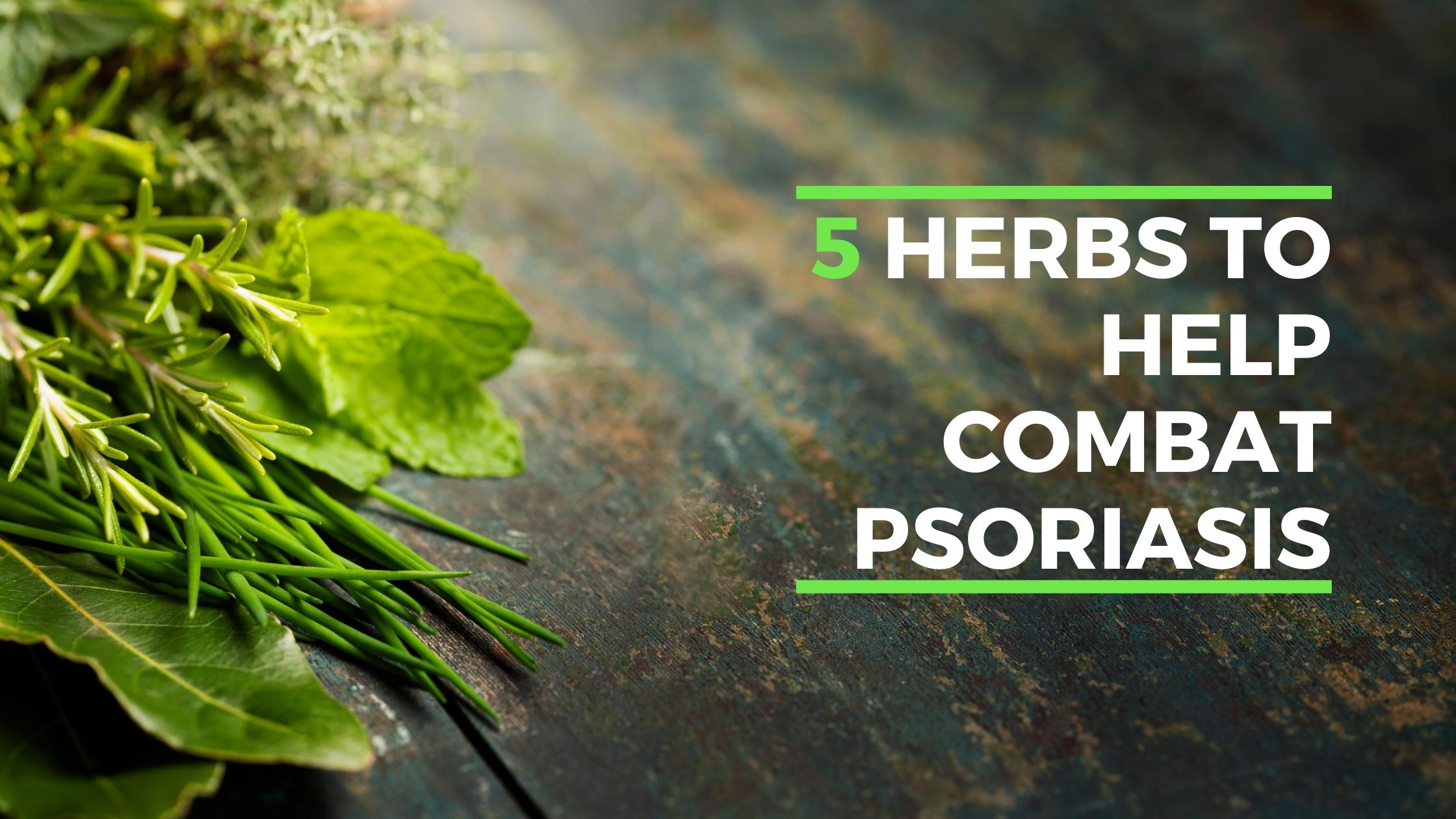
4 Indicators of Psoriasis
Diagnosing psoriasis can be a long, difficult, and drawn-out process. But determining whether or not you have it may be the first step in finding relief and improving your quality of life.
Start by checking out these indicators, but be sure to discuss your thoughts with a healthcare provider.

What is psoriasis?
Psoriasis - let’s start off by establishing what it is, and what it isn’t.
Psoriasis is an autoimmune disorder (also known as a skin disease), that causes red, itchy, and sometimes flaky scales to form and re-form upon the skin. These patches result from an excess amount of cells that build up on the skin.
It’s largely believed that both internal and external factors play a role in the development, progression, and severity of psoriasis.
Internal factors include things like genes and familial predispositions, whereas external factors include things like environmental triggers. These triggers can include things like diet, lifestyle, and stress, and typically worsen during “flare-ups” at which the rate of skin cell production increases.
To learn more about psoriasis, you can click here.

How can I be sure I have psoriasis?
Before you read on, it’s important to note that we don’t encourage self diagnosis.
To those who may be feeling unsure, we recommend contacting your local dermatologist or primary care physician to discuss any questions or concerns.
But for those who are seemingly curious or suspect there may be something wrong, take this as your starting point.

1. The appearance of your skin
Arguably the largest indicator of psoriasis comes from the appearance of your skin.
While there are several types of psoriasis that exist, many of them share strikingly similar features.
Psoriatic skin is typically very dry and tends to crack or split easily. Skin may also appear red or irritated, and can be rough or smooth in texture.
Because psoriasis is so frequently misdiagnosed for other skin conditions (i.e. eczema, ringworm, etc.), it’s important to discuss your full medical history and symptoms with a healthcare professional.
While you’re probably thinking that small details won’t make a difference, be sure to mention them. These nuances may be enough to help target the problem, or at the very least, eliminate other possibilities.
Those living with psoriasis, for example, may actually experience different sensations than those living with eczema, which leads us to our next point…

2. Your level of discomfort
It’s safe to say that with any skin condition, you may experience a certain level of discomfort.
But in psoriasis sufferers especially, these feelings have been reported as intensified pain and/or localized burning.
Other skin conditions such as eczema, or even severe allergic reactions may present as increased, uncontrollable itching, but without lasting tenderness.
While pain may be common in some psoriasis users, it’s not to say that all will experience it. So if this doesn’t apply to you, that’s great, but make sure not to completely rule it out.

3. Your environment
Like we said before, psoriasis is both internal and external.
Changing the environment in which you’re in may affect psoriasis, but oftentimes it doesn’t. The appearance of psoriasis won’t likely vanish altogether if you change your diet or eliminate stress, although the severity of symptoms may decrease.
Eczema and allergies, on the other hand, have been more closely linked to air pollutants and irritants.
So if you change the lotion you’re using, or steer clear from a certain detergent and the problem goes away, chances are, it’s not psoriasis.

4. The length of time it exists
If these symptoms persist, it’s increasingly likely that it is psoriasis.
Like we mentioned before, if these symptoms come and go, it’s probably not psoriasis.
While you may go through periods of time where you’re not experiencing flare-ups, psoriasis will never completely “go away”.
Due to the internal component of the disease, it’s a chronic, life-long condition.

What if I do have psoriasis?
That’s okay! Don’t fret. There are plenty of options to help you manage your psoriasis.
If you’re not sure where to start, let us introduce you to our Psoriasis Honey Skincare Line.
Our collection was specifically formulated to work on even the toughest of flare-ups. Containing ingredients like aloe vera, grape seed oil, and honey, our products are designed to help soothe and deeply condition troubled skin.
Head over now to check out the collection and find the relief you deserve.



Leave a comment
This site is protected by hCaptcha and the hCaptcha Privacy Policy and Terms of Service apply.